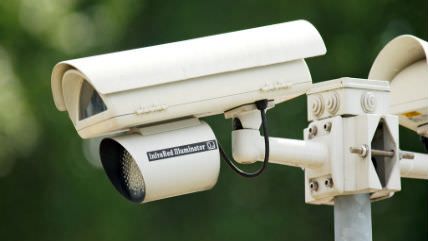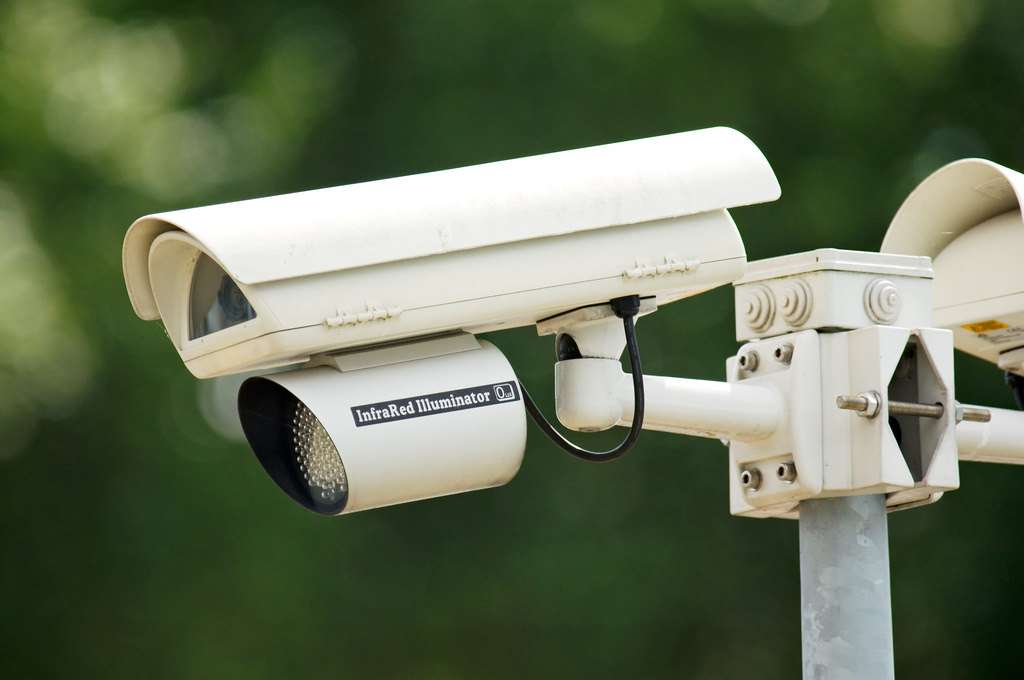Oakland, CA Police Will Build City-Wide "Spy Center" With Surveillance Cameras, Maybe Drones

By the middle of next year, Oakland, California will likely have a city-wide central surveillance center to monitor citizens at all times.
In a 6-1 vote last month, the Oakland City Council agreed to move forward with the creation of the Domain Awareness Center: a central surveillance hub for law enforcement in one of the country's most dangerous cities. The "spy center" will pull data from a web of interconnected monitoring devices strewn throughout the city and will operate 24 hours a day, seven days a week.

According to the Center for Investigative Reporting, the Domain Awareness Center started as a federal anti-terrorism project for the Port of Oakland, but is now expanding into a city-wide program.
The Domain Awareness Center, a joint project between the Port of Oakland and city, started as a nationwide initiative to secure ports by networking sensors and cameras in and around the facilities. The busy port is one of seven U.S. maritime facilities that the Department of Homeland Security considers at highest risk of a terrorist attack.
Since its inception in 2009, the project has ballooned into a surveillance program for the entire city. Some officials already have proposed linking the center to a regional Department of Homeland Security intelligence-gathering operation or adding feeds from surveillance cameras around the Oakland stadium and arena complex.
The center will aggregate information from an array of existing surveillance methods, including thousands of security cameras owned by the city and private businesses, license plate readers, gun shot detectors, crime-mapping software, and Twitter feeds.
Oakland residents vigorously protested the Domain Awareness Center, citing privacy concerns and a lack of trust in police.
Joshua Daniels, one of the speakers during a July city council meeting, said the surveillance center would give significantly more power to the police department, which he believes "doesn't respect the rights" of Oakland residents.
"This city has a huge trust issue," Daniels said, "and it's not going to be solved by spying on your citizens."
West Oakland resident Magdalena Kazmierczak agreed, "I don't want to live in a city that is testing this giant surveillance system, because I believe it is going to be used to criminalize normal existence."
The American Civil Liberties Union of Northern California and the Electronic Frontier Foundation have also stated their opposition to the center, on the grounds that there are no privacy guidelines in place or limits on how much collected data the city will retain.
This is all happening in the same city where, earlier this year, the county sheriff proposed purchasing a drone that can virtually see through walls with infrared technology. The drone plan was tabled following a series of complaints over privacy concerns by groups like the ACLU and Alameda County Against Drones, but it may be brought up again.
The Domain Awareness Center however, will almost certainly still be constructed. Oakland will allocate $10.9 million in federal grant money to create the new center. The city also plans to apply for an additional $2.6 million to create several new law enforcement positions.


Show Comments (21)